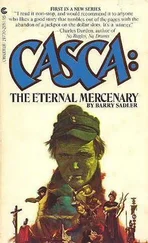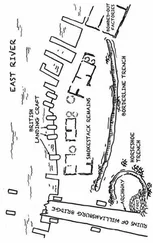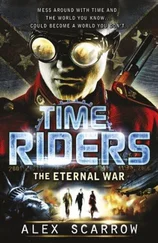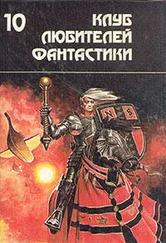Naoki Hyakuta
THE ETERNAL ZERO
It was definitely right before the end of the war, but I don’t remember the exact date. That damn Zero, though, is something I’ll never forget. It was like the devil himself. I was a 5-inch artillery gunner on the USS Ticonderoga. My job was protecting the aircraft carrier from those crazy kamikazes that plunged right at us.
The 5-inch shells had so-called proximity fuzes. The proximity fuze emitted radio waves in a radius of 50 feet of the shell and was designed to detonate the instant interference from an approaching aircraft was sensed. It was an awesome weapon. I fired hundreds of those shells. And shot down most of the kamikazes before they got close to the carrier.
The first time I saw a kamikaze, I was seized by fear. I had deployed on the Ticonderoga in the beginning of 1945. I had heard rumors about the kamikazes, but when I first laid eyes on them, I thought, “They’re gonna drag me down to hell with them.” These suicide bombers were the height of madness. I wanted to think that it was a unique exception; however, their attacks came one after another. I thought they were not human. Far from not being afraid to die, they just threw themselves to death at us. Didn’t they have families, friends, lovers—anyone that would mourn their deaths? I was different. I had wonderful parents back in the Arizona countryside and a fiancée.
Our Navy had magnificent artillery and the power of the proximity fuzes was astounding. Our ships could fire them all at once, the barrage darkening the sky. Rare was the kamikaze that could break through. Any that did were baptized with showers of bullets from 40-mm and 20-mm machine guns. And most of them exploded or fell into the ocean in flames.
Before long, my fear faded, replaced by anger. Anger incited by deeds committed by those who did not fear God. Or perhaps it was a desire for revenge for the fear that they had given me. We gunners focused the energy of our anger into our artillery and machine guns, and pounded away at them. Once my initial fear passed, it became a game. We shot down kamikazes like we were shooting at clay pigeons.
They usually approached from a shallow angle. By then, Japanese pilots were all rookies, and there were few that could come at us from steep dive angles. Our guns could move in almost any direction, but it was difficult to keep them in our sights if they dove at us from directly above the ship at close to 90 degrees. On the other hand, if they did come at us from such steep angles, it was extremely difficult for them to ram into the ship. A guy familiar with airplanes once told me that at high speeds an aircraft’s rudder becomes ineffective. I saw many such diving kamikazes lose sight of their target and crash into the ocean.
However, shooting down kamikazes was also becoming increasingly painful. Heck, the target was not just a clay pigeon. It was a fellow human being.
Darn you, kamikazes. Please stop coming! I lost count of how many times I thought such words.
But if they came, I would shoot them. If I didn’t, we would die. More than a few warships sank after being rammed into. Warships had thousands of personnel on board. If one sank, hundreds would perish. We couldn’t allow hundreds of Americans to die because of one Japanese. Even if the ship hit by a kamikaze didn’t sink, dozens of us could still die.
After the Battle of Okinawa in May, our defense against kamikaze attacks was nearly perfect. Radar picket ships positioned 100 miles ahead of the main flotilla picked up approaching kamikaze planes at a range of 200 miles, which allowed interceptors positioned far ahead of the warships to shoot down most of them.
By then, the kamikazes didn’t have fighter escorts. They were like flocks of sheep with no dogs to guard them. Rendered sluggish with their heavy ordnance, the kamikaze planes were no match for our late-model fighters. That was why the majority of them never reached the flotilla.
That summer, we high-angle anti-aircraft gunners were open for business but had no customers. As August came, it was widely speculated that the war would soon be over.
That’s when I caught a glimpse of that damn devil of a Zero.
I was awakened by the Star Wars theme ringing on my cell phone. Glancing at the clock, it was past noon. It was my sister calling.
“What’re you up to?”
“Just takin’ a walk.”
“You were sleeping, weren’t you?”
“Am gonna hunt for a job this afternoon.”
After a brief pause, she suddenly said, “You’re lying! Are you going to goof off forever, not working? They call people like you a NEET, Kentaro.”
“Do you even know what NEET stands for?” I replied.
She ignored the question. “If you’re not doing anything, I can get you a good part-time job.”
Oh, here we go again, I thought.
To be sure, even I thought myself rather pathetic—twenty-six and just hanging around without working. Waiting for another shot at the bar exam might sound good to some. But I hadn’t even bothered to take it this year. I had for four consecutive years since my senior year of college and failed every time. The first time stung the worst. While I passed the essay section, considered the toughest, I completely screwed up the oral exam. That thoroughly disappointed my advisor.
Everyone thought I’d make it the next time, because those who passed the essay section were exempted from it the following year. However, I stumbled during the oral exam again. Being excused from the written portion, I’d taken it too easy. From there, I really bungled things. The next year I failed the essay exam, and the year after that I failed the short-answer test. I was in the worst possible mental state during that last exam, the girl I’d been dating since college having dumped me.
After that, I lost my self-confidence and motivation and spent my days goofing around aimlessly. I had been told that amongst my class I was the most likely to pass the bar exam first. Yet here I was, counted amongst the dropouts. Occasionally I worked part-time as a cram-school instructor. And when in the mood, I did some manual-labor jobs. But whatever I did, it was just to kill time.
I still felt confident that if I could get my engine going and studied in earnest, I could pass. But that essential motivation was missing, and more than a year had flown by as my law books gathered dust.
“So what is this part-time gig?”
“My assistant.”
“Thanks, but no thanks.”
My sister Keiko was four years older than me and worked as a freelance writer. Well, actually she was still just a fledgling reporter. After working four years at a publisher of trend magazines, she’d gone freelance. The bulk of her work was interviews for her former employer. Even so, she was renting an apartment in Tokyo, so apparently she was earning enough to get by. She always said that one day she’d be a top-flight nonfiction writer. And while that was probably just a dream, she was pretty ambitious.
“Well, to be honest, you wouldn’t be assisting me with my regular work. I want to research our grandfather.”
“Research what about Grandpa?”
“Not ‘Grandpa’… I mean Grandma’s first husband.”
“Oh, I see.”
Grandma lost her first husband in the war. They say he died during a kamikaze mission. Their married life was apparently very short, but my mother was born then. Grandma remarried after the war, and that husband was “Grandpa” for us.
Читать дальше


![Nick Cracknell - The Quiet Apocalypse [= Island Zero]](/books/28041/nick-cracknell-the-quiet-apocalypse-island-zero-thumb.webp)










